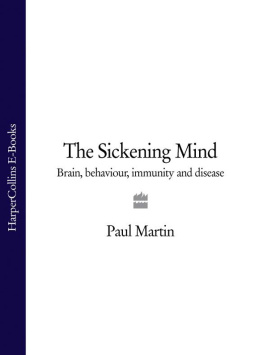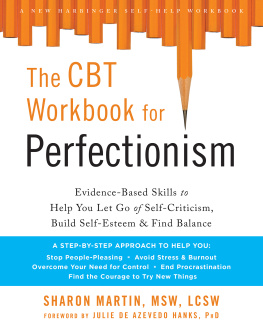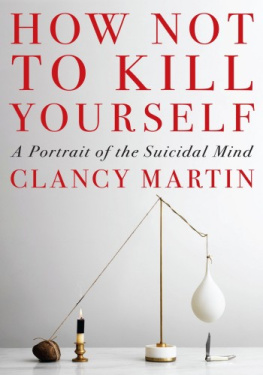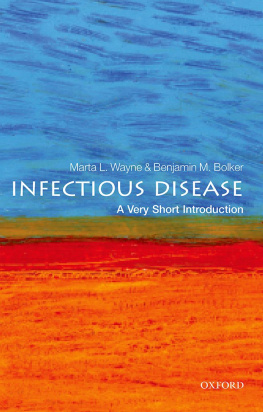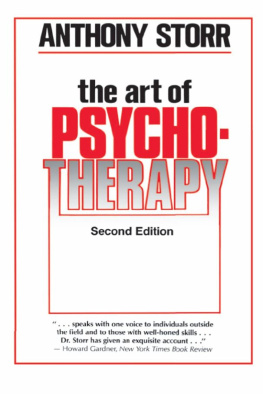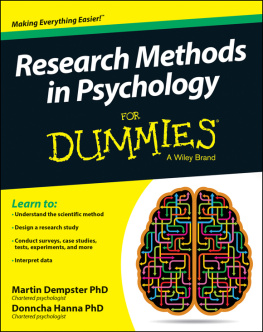1
The Body of Knowledge
Most of the time we think were sick, its all in the mind.
Thomas Wolfe, Look Homeward, Angel (1929)
It is time to acknowledge that our belief in disease as a direct reflection of mental state is largely folklore.
Editorial, New England Journal of Medicine (1985)
You, dear reader, are going to die. Not for a long time, I hope, and painlessly. But die you undoubtedly will. And unless you die in the near future, and from unnatural causes, you will be ill before you die probably several times. Some remarkable scientific discoveries have shown that your mind will affect your susceptibility to those illnesses and may have a substantial bearing on the nature and timing of your eventual death.
This book is about these scientific discoveries. It explores the ways in which your psychological and emotional state influence your physical health and how, in turn, your physical state affects your mind. It seeks to explain some of the extraordinary things that scientists have discovered in recent years about the interconnections between the brain, behaviour, immunity and health. By unravelling the biological mechanisms that underlie these phenomena, scientists can at last reconcile many commonplace notions about mental influences on health with a modern understanding of how the brain and behaviour affect the functioning of the body.
This is not intended to be a self-help book and I shall not be setting out detailed prescriptions for instant health or miracle cures for AIDS. The rapidly growing corpus of scientific knowledge about mind body interactions has numerous potentially valuable applications in medicine, and I shall describe them. But practical action must be built on solid foundations of knowledge and understanding. As Sir Francis Bacon once remarked, Knowledge itself is power.
Bacon also remarked that all knowledge and wonder (which is the seed of knowledge) is an impression of pleasure in itself. I hope you will find the discoveries described here intriguing and worthwhile in their own right, regardless of their utilitarian value. We neglect the sheer wonder of scientific knowledge at our peril. Practical applications matter a great deal, but they are not the only fruits of science.
Let us get down to business by conducting a simple thought experiment. When you have read this paragraph shut your eyes and cast your mind back to the most mortifyingly embarrassing moment in your life, the worst that you can dredge up from the dank recesses of your memory. Think hard and choose the most awful, squirm-inducing calamity. Be brutally honest. Perhaps you committed an appalling social blunder at an august gathering, or said exactly the wrong thing at the wrong time. Close your eyes and re-live the incident in all its ghastliness, focusing on your own humiliation.
Have you blushed? Are your cheeks burning with embarrassment? If so, you have just demonstrated a mundane example of an important biological principle: that mere thoughts and emotions can generate very real physical reactions.
If you would like to demonstrate the empirical truth of this principle again, but in a different and more recreational way, close your eyes and conjure up your most arousing and succulent sexual fantasy. You surely must have one. Sit back and let your mind savour the luscious details of whatever erotic images it has chosen. Let the moist, quivering images run rampant. The physical consequences of what is now going on in your mind should, with any luck, be more fun than a blush.
The minds influence on the body is usually more serious than a blush or a sexual frisson, however. It can even determine when we die. As an appetizer we shall consider two examples.
During the Gulf War of 1991 Iraq launched a series of missile attacks against Israel. Many Israeli civilians died as a result of these attacks. But the vast majority of them did not die from any direct physical effects of the missiles. They died from heart failure brought on by the fear, anxiety and stress associated with the bombardment. They died because of what was going on in their minds.
How do we know this? After the war was over Israeli scientists analysed the official mortality statistics and found something remarkable. There had been a large and anomalous jump in the death rate among Israeli citizens on one particular day: the day of the first Iraqi attacks.
In the early hours of 18 January 1991 Iraq launched the first of several SCUD missile attacks against Israeli cities. Measured in terms of physical destruction, the Iraqi weapons were surprisingly ineffective. There were no deaths through physical injuries in the first attack and only two people were killed by the direct physical effects of SCUD detonations during the subsequent sixteen days on which missiles fell. And yet, on the day of the first attack, the death rate in Israel leapt by 58 per cent. A total of 147 deaths were reported, 54 more than would have been expected on the basis of previous mortality figures for that time of year. In statistical terms this was a highly significant increase; the odds against it arising from random fluctuations alone were enormous. What happened?
The evidence consistently pointed towards one conclusion: the sharp rise in death rate on 18 January 1991 was primarily a consequence of severe emotional stress brought on by fear of the Iraqi bombardment. It was the psychological impact of the SCUD missiles, not their physical impact, that claimed the majority of the victims.
The reasoning behind this conclusion was straightforward. The unexpected extra deaths resulted in the main from heart failure or other forms of abrupt cardiovascular catastrophe. There was no increase in deaths from lingering diseases such as cancer, for example. As we shall see later, psychological stress can induce physiological changes which may prove fatal to someone who already has a diseased heart or clogged coronary arteries.
The extra deaths were concentrated in areas of Israel where the levels of fear and anxiety were highest: regions that were known to be threatened by Iraqi missiles. In parts of Israel where SCUDs were not expected to land the mortality rate remained much the same as usual. Psychological studies carried out during this period indicated that the most stressful time for Israeli citizens was the few days leading up to the outbreak of war on 17 January, peaking on the day of the first SCUD missile attacks. There was enormous and well-founded concern about possible Iraqi use of chemical and biological weapons. The entire Israeli population had been issued with gas masks and automatic atropine syringes in case of chemical attack, and every household had been told to prepare a sealed room.
After the first Iraqi strike had occurred, and turned out to be less cataclysmic than feared, there was a marked decline in levels of stress. As in other wars, the populace adapted to the situation with surprising speed. Then, as the fear and anxiety subsided, so the death rate also began to decline. There were seventeen further Iraqi missile attacks over the following weeks, but Israeli mortality figures over this period were no higher than average.
There is little doubt that many of the Israelis who died in the opening days of the war were killed by the Iraqi missiles. But there is equally little doubt that many of them died because of what was going on in their minds and not from physical injuries. Of course, their mental state was not the only thing that contributed to their deaths. Most, if not all, of those who died also had a pre-existing medical problem which made them especially vulnerable to the damaging effects of psychological stress. Many died because they had pre-existing coronary heart disease and their hearts gave out under the stress.

